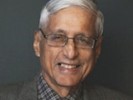Everything does NOT depend solely on how crores of Indians will vote in the coming election. If they are Supreme Court judges, just two individuals can usher in a gale of fresh air. Which is what Justices Abhay S. Oka and Ujjal Bhuyan so magnificently did on March 7 when they quashed proceedings that had been launched against Professor Javed Ahmad Hajam, who hails from Baramulla in Kashmir but was teaching in a college in Kolhapur, Maharashtra.
In 2022, Professor Hajam was hauled up by Maharashtra's police for criticising on WhatsApp the abrogation of Article 370 and for extending greetings to Pakistanis on their Independence Day.
On the first question, the justices have declared in plain language that criticism and dissent are among the fundamental rights of citizens. In a democracy, citizens are perfectly entitled, the judges have laid down, to call a piece of legislation they do not like, such as the one that abrogated Article 370, "a black Act".
On the second question, the justices pointed out that "wishing people of Pakistan a happy independence day" was essentially "a goodwill gesture". Rejecting the Maharashtra police's argument, the justices have held that "in the minds of reasonable people", such a gesture would not "create feelings of animosity, hostility, hatred or ill-will between different religious groups".
Thus discharging their responsibilities without fear or favour, Justices Oka and Bhuyan have added a slice of hope to Indians' oft-dismal menu. Thank you, sirs!
In contrast, the Delhi policeman (now thankfully suspended), who on Friday, March 8, brutally kicked men who were on their knees outside an overcrowded mosque in Delhi, praying, has brought a coating of shame to our skins. This policeman may have also increased risks for India's Hindus who live in Muslim-majority areas, of whom there are millions.
By now, many more millions around the world will have seen the viral videos of the Indian policeman. This policeman abused his responsible position. He implied that the Indian state prefers coarse supremacy over human dignity.
On March 5, in another welcome intervention in India's judicial sector, two judges on the Nagpur Bench of the Bombay High Court, Justice Vinay Joshi and Justice Valmiki S.A. Menezes, allowed the appeal of the long-imprisoned professor G.N. Saibaba, who had been accused of participating in banned Maoist activities. Finding that such participation had not been established by the government, the justices ordered Professor Saibaba's release, which took place on March 7.
In subsequent interviews in Mumbai and Delhi, some of them accessible online, the Andhra-born professor has spoken of extreme physical and emotional hardships during his seven-year incarceration, which, among other things, resulted in his dismissal from Delhi University, where he taught for several years. In interviews, Saibaba has also spoken of the help he received from time to time from fellow prisoners, lawyers, and journalists.
This last point struck me as being extremely significant. When they discharge their professional or moral responsibilities, citizens, including prisoners, journalists, lawyers and those working in healthcare, also play a role in a democracy, whether or not anyone has heard their names.
With good reason, opposition parties as well as non-political citizens troubled by the state of India's democracy are agitated about who will get a majority in the next Lok Sabha and form a new government. There are question marks about the unity quotient of the INDIA bloc, as also about the bloc's efficiency, even as others argue that the public discontent with unemployment and poverty will favour the opposition.
Optimists in opposition ranks appear to believe that a quiet wave of unhappiness will produce results not captured in surveys. Others, however, will insist that opposition politicians will once more do what they have so often done in the past. Forgetting who their foes are, they will first finish off their allies.
Long ago, in the 1840s, in the aftermath of the death in 1839 of Maharaja Ranjit Singh, who had successfully kept the British out of Punjab, his successors squabbled with one another and made secret deals with the British, who soon captured Punjab. As historian Andrew Major would write, "The leaders eventually identified their rivals - rather than the British - as their real enemies." (Return of Empire, 1966)
Yet, democracy does not live or die by votes alone. What India's citizens do outside the polling booth and on days other than voting day is also of consequence. Haven't we just seen that judges, policemen, journalists, lawyers and professors make a difference?
PromotedListen to the latest songs, only on JioSaavn.com
Rajmohan Gandhi's latest book is Fraternity: Constitutional Norm and Human Need (2024)
Disclaimer: These are the personal opinions of the author.





















 Toi Staff
Toi Staff Gideon Levy
Gideon Levy Belen Fernandez
Belen Fernandez Andrew Mitrovica
Andrew Mitrovica Mort Laitner
Mort Laitner Rami G Khouri
Rami G Khouri Ali Fathollah-Nejad
Ali Fathollah-Nejad Nikkei Editorial
Nikkei Editorial
